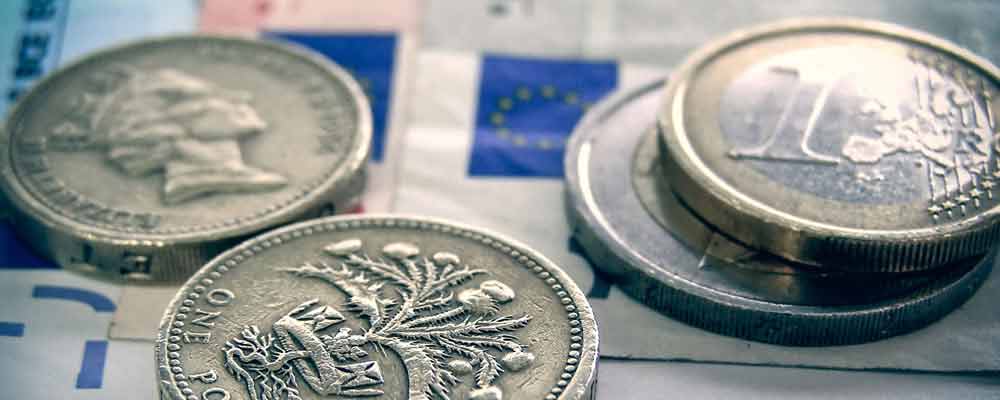Euro Pound Exchange Rate Slips as UK Retail Sector Returns to Pre-Covid Levels
The Euro Pound (EUR/GBP) exchange rate softens as UK retail sales beat forecasts and climb by the biggest increase in four months.
At time of writing the EUR/GBP exchange rate is trading around £0.8798, a 0.27% fall from this morning’s opening levels.
Pound (GBP) Boosted by Strong Retail Rebound
The Pound is enjoying renewed strength this morning after retail sales increased 1.2% MoM in February, beating expectations of a modest 0.2% increase.
The Office for National Statistic (ONS) released the latest retail sales volumes data earlier today, buoying Sterling on better-than-expected retail sales. Amidst the cost-of-living crisis, and a sector under immense pressure, consumers shrugged off spending restraints and boosted the retail sector.
The biggest drivers for the increase came from non-food stores (2.4%), as charity shops, discount stores and second-hand retailers. Shoppers turned to discount goods but cut back on eating out and drinking in restaurants and bars. However, Ashley Webb, Economist at Capital Economics, cautioned that the surprise rebound might not be sustainable going forward:
‘At face value, these data further add to the view that the recent resilience in activity is still holding up. But when households’ finances are under pressure, it is possible that any improvement in retail sales will just be met by a softening in non-retail spending (such as restaurants).’
Lending considerable support to Sterling was the fact that the retail sector has finally returned to pre-pandemic levels. But when taking the three months leading up to February 2023, retail sales were still down 0.3%. Darren Morgan, Director of Economic Statistics at ONS commented:
‘However, the broader picture remains more subdued, with retail sales showing little real growth, particularly over the last eighteen months with price rises hitting consumer spending power.’
Euro (EUR) Undermined by Mixed PMI Data
Meanwhile, the Euro is struggling for demand against its rivals despite the service sector bolstering business activity in the Eurozone. A drop in manufacturing offset a strong revival in the service sector.
Services PMI leapt to 55.6, jumping from 52.7, marked the fourth consecutive month of improving activity, and far above market forecasts of 52.5. The highest service sector level since May was offset by a disappointing factory sector. Manufacturing PMI fell to 47.1, the lowest since November. The latest PMI also signalled a ninth consecutive month of contracting activity, weighing on the Euro.
However, a strong recovery in jobs growth helped business activity rebound, as it jumped to a 10-month high. Business confidence remained fairly muted, but still highlighted signs of resilience amid the turbulence of the global climate. Chris Williamson, Chief Business Economist at S&P, said of the data:
‘The euro zone economy is showing fresh signs of life as we enter spring. The survey is consistent with GDP growth of 0.3% in the first quarter, accelerating to an equivalent rate of 0.5% in March alone.’
Euro Pound Forecast: European Banking Crisis to Sink the Euro?
Looking ahead, the Euro Pound exchange rate could see further movement with developing concerns of a global banking crisis. Banking stocks have plunged across Europe as Deutsche Bank has seen shares fall almost 13% amid a turbulent market mood. If things worsen, the Euro could plunge on banking sector fears.
Meanwhile, a speech from Bank of England (BoE) policymaker Catherine Mann could inspire the Pound. If she continues the hawkish tone from BoE Governor Andrew Bailey, Sterling could climb on renewed rate hike bets.



